
The 2019 World Cup final was an all-time classic.
Nothing could separate the two teams who fought tooth to nail till the very end and produced the greatest game in ODI history.
Brilliant performances from players of the 10 participating teams through the World Cup will be etched in memory of cricket fans forever.
Harish Kotian/Rediff.com picks his World Cup Dream XI:
Jason Roy
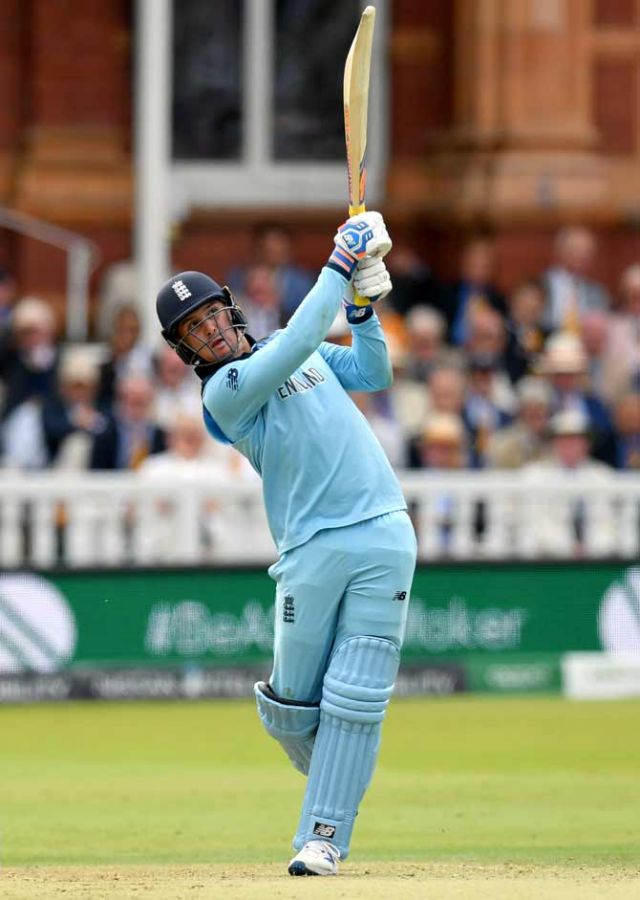
The impact that Roy made at the top of the order after an injury comeback was instrumental in England sneaking through to the semi-final after losing to Sri Lanka and Australia.
He struck a quickfire 66 in a must-win game against India in his comeback match that put England's campaign back on track with a resounding win against one of the title favourites, before hitting 60 against New Zealand in the next game.
In the semi-final against Australia, Roy smashed 85 from 65 balls to power England to a thumping 8 wicket victory.
Overall, Roy scored 443 runs in 8 games at a strike rate of 115 with a century and four fifties.
His swagger with the bat brought the belief and confidence back in the England camp.
Jonny Bairstow
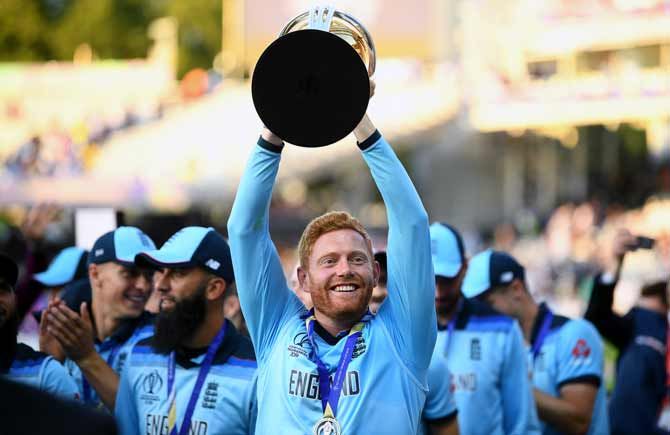
Bairstow was the driving force behind England's superb run at the World Cup.
He started the tournament with a duck against South Africa, but made up for it with a mountain of runs thereafter.
It rained boundaries when Bairstow and Roy got going and virtually every bowling attack was shred to pieces.
The dangerous duo put on four century stands during the World Cup along with a 95 run stand against the West Indies.
Bairstow hit centuries in crucial games against India and New Zealand in the league stages to finish 532 runs from 11 games, with two centuries and two fifties.
Rohit Sharma
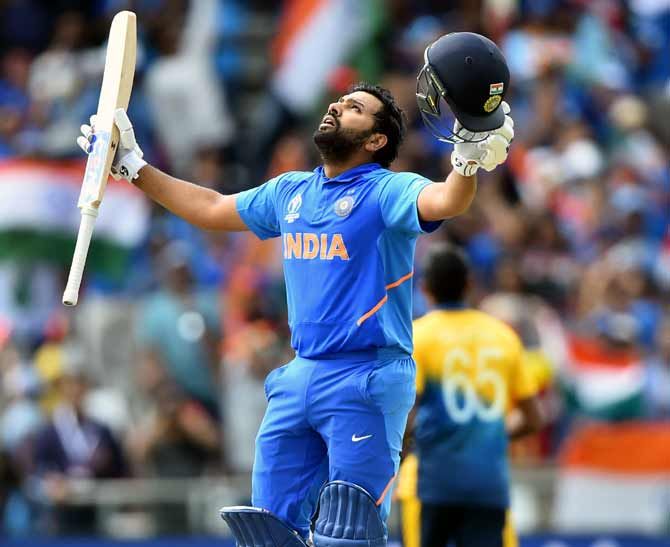
Rohit underlined his status as one of the best batsmen in the world in ODIs, but it would be hard for him to dislodge Bairstow and Roy at the top of the order, part of the World Cup-winning team.
The India opener enjoyed a golden run with the bat hitting a record five centuries in the World Cup -- the first batsman to achieve the feat.
He finished as the highest run getter in the tournament with 648 runs in 9 matches at an average of 81.
India were heavily dependent on Rohit in the World Cup and it showed when his rare failure in the semi-final against New Zealand saw them fail to chase 240.
Kane Williamson (Captain)
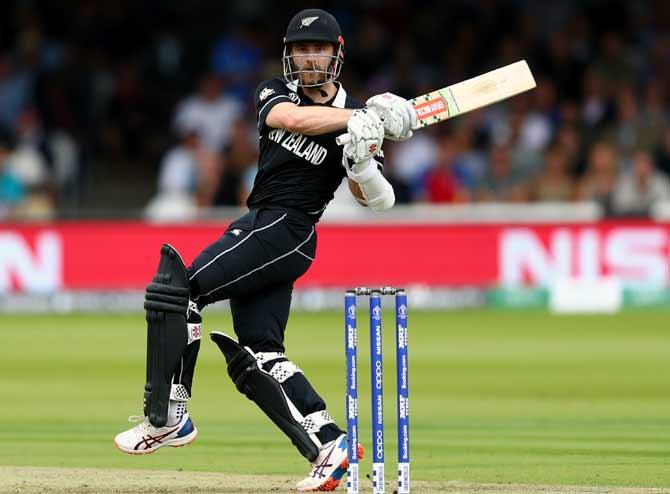
Williamson led New Zealand from the front with the bat.
With the Kiwi openers struggling throughout the World Cup, Williamson took the responsibility upon himself to guide the team home.
Captain Cool played one of the innings of the tournament when his unbeaten 106 saw the Kiwis edge past South Africa by 4 wickets with 3 balls to spare in a close finish.
His gritty 67 was also vital in New Zealand's narrow win against India in the semi-final.
His reading of the conditions was far better than other skippers in the World Cup, especially in the semi-final and final when he elected to bat on winning the toss.
Overall, he amassed 578 runs in 10 games at an average of 82, with two centuries and two fifties.
Shakib Al Hasan
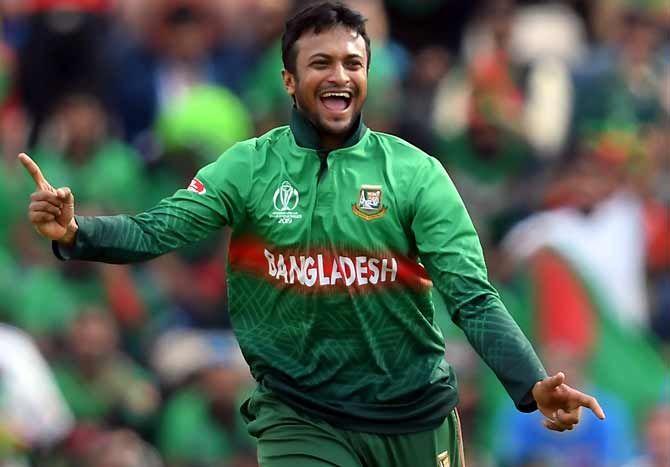
Bangladesh may have bowed out after the league stages, but Shakib emerged a winner.
The all-rounder's superb performances with the bat and ball impressed everyone.
The left-hander tallied an impressive 606 runs in 8 games at an average of 86 with two centuries and five fifties.
He also took 11 wickets.
Shakib is the only player to have scored 600-plus runs and taken more than 10 wickets in a World Cup.
He also became the second cricketer after Sachin Tendulkar to register 50-plus scores in a single edition of the World Cup.
Jos Buttler (wicket-keeper)
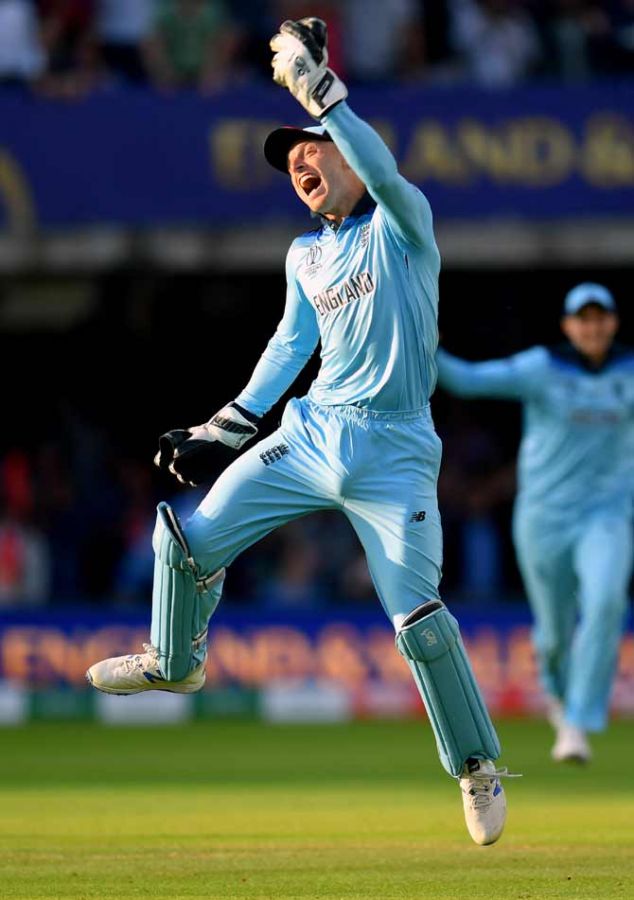
Buttler played perhaps the most important knock of his ODI career when he hit a fluent 59 from 60 balls in the World Cup final.
He put on 110 runs for the 5th wicket with Ben Stokes to bring England back into the contest.
England looked in danger of capitulating for a low score as they were reduced to 86/4 in the 24th over, but Buttler's positive batting kept them afloat.
He also displayed sharp glovework to run out Martin Guptill off the last ball of the Super Over.
Buttler had hit a sparkling 76-ball 103 to bring England back from the dead against Pakistan. He then hit a quickfire 64 from 44 balls against Bangladesh.
He finished with 312 runs in 9 innings at a strike of 122 with a century and two fifties and had 14 dismissals -- 12 catches and two stumpings.
Ben Stokes
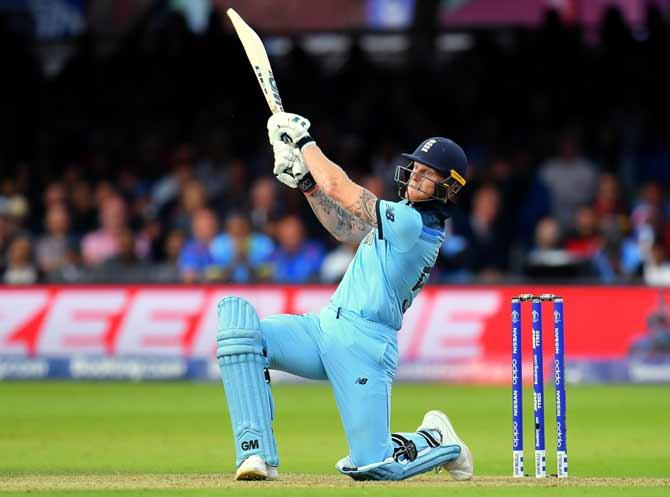
If not for Stokes, England's wait for an ODI World Cup would have carried on.
The all-rounder battled hard and never gave up in difficult times as he scored an unbeaten 84 from 98 balls in the final to tie the game and take the contest into a Super Over.
Stokes started off with a quickfire 89 from 79 balls against South Africa in the tournament opener, then made a couple of 80s against Sri Lanka and Australia.
He slammed a cracking 79 from 54 balls against India, helping England get some quick runs at the end.
Stokes took 11 wickets in 50.5 overs at an economy rate of 4.8.
Jofra Archer
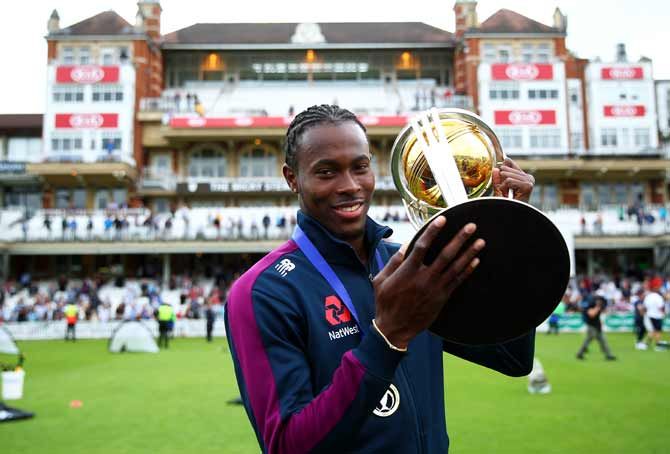
There were sceptics in the England camp before the World Cup over the inclusion of pacer Jofra Archer.
Team-mate Chris Woakes was vocal about Barbados-born Archer's presence on the team; he felt it would be unfair to ask the current players to step down.
All those doubts have been laid to rest. Archer produced the performance of his life to give England its first-ever ODI World Cup.
Given the responsibility of bowling the Super Over, the 24 year old didn't disappoint. With 16 needed for victory and despite being hit for a 6 by Jimmy Neesham, Archer produced two superb final deliveries under pressure to take his team to victory.
Overall, Archer had a brilliant World Cup, always bowling the tough overs -- at the start and in the death.
In the final, he conceded just 11 runs in his final three overs, bowling at the end.
He was England's highest wicket-taker and third overall in the World Cup with 20 wickets from 11 games at a strike rate of 23.
Jasprit Bumrah
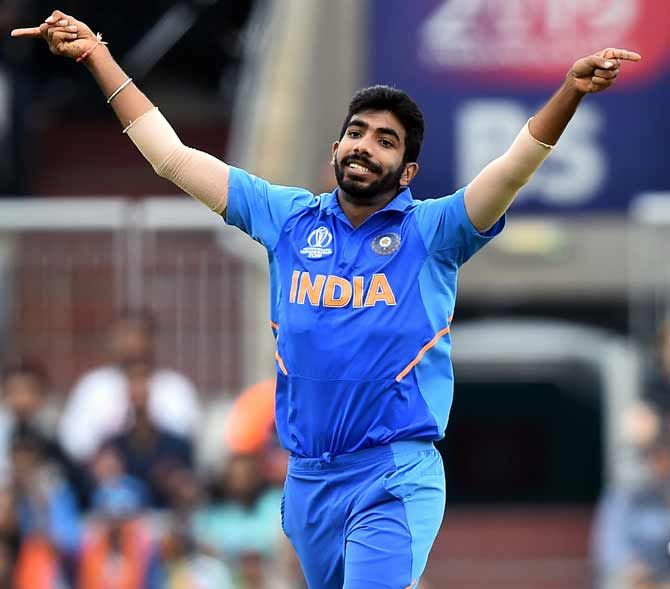
Bumrah showed why he is rated so highly across the world. His immaculate control makes him a spectator's delight and a batsman's nightmare.
His ability to produce yorkers at will and his fiery spells with the new ball saw India put in some good performances in the league stages despite their struggling spinners.
Who can forget his superb performance against Afghanistan? The Afghans needed 21 from 12 balls, but Bumrah conceded just 5 runs in the 49th over to set the stage for Mohammed Shami to finish them off with a hat-trick in the final over.
He also ripped the Bangladesh run chase apart, claiming 4/55, then followed it with 3/37 against Sri Lanka.
Playing his first World Cup, Bumrah finished with 18 wickets in 9 games at a wonderful economy rate of 4.41 -- the best among bowlers taking 10 wickets or more.
Mitchell Starc
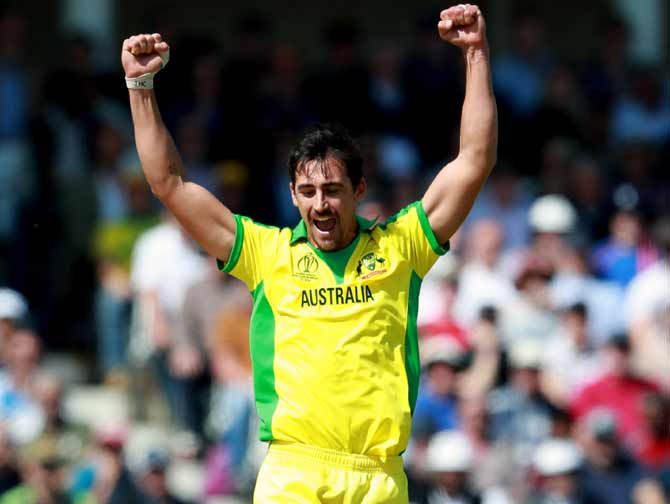
Starc was the top wicket-taker in the World Cup with 27 wickets from 10 games.
The left-arm Australian fast bowler produced the ball of the tournament when he cleaned up Ben Stokes with an unplayable yorker to end England's hopes in the league match as he finished with 4/43.
He then produced another standout performance with the ball against New Zealand at Lord's. Starc took 5/26 to send the Kiwis crashing for a paltry 157 after they were set 244 for victory.
Lockie Ferguson
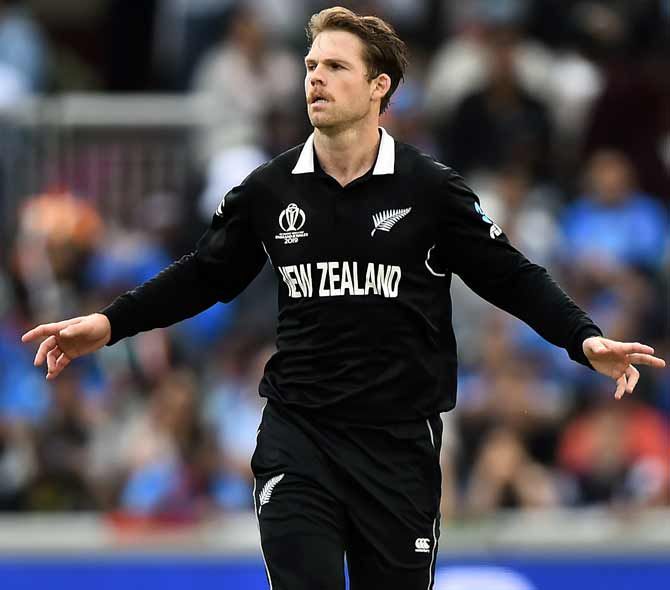
Ferguson was the surprise package of the World Cup.
The Kiwi fast bowler troubled every batting line-up with his searing pace and deadly bouncers.
Despite battling a hamstring injury Ferguson finished as New Zealand's highest wicket-taker with 21 wickets from 9 games at a strike rate of 23.
He claimed some vital wickets in the final, dismissing the well-set Jonny Bairstow, following it up with Jos Buttler's vital wicket to finish with 3/50.
And who can forget his stunning catch to dismiss Eoin Morgan at sweeper cover to turn the tide in New Zealand's favour?
He decimated Afghanistan with a fiery 4/37, while picking up 3 wickets each against Sri Lanka, South Africa and the West Indies.
Photographs: Getty Images
Agree/Disagree with Harish's Dream XI?
Why don't you list your Dream XI in the message board below and tell us why you made those choices?
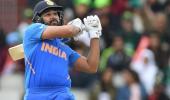











 © 2025
© 2025